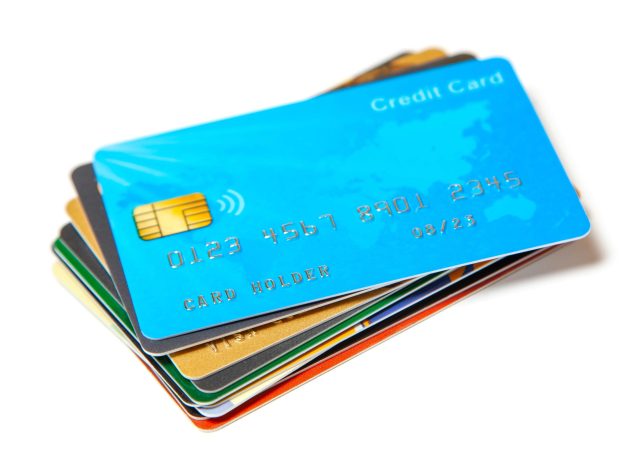Credit cards are starting to make a comeback after decades of a bad rap. “Don’t use a credit card unless it’s an emergency!” our mothers’ voices ring in the back of our heads as we reach for safe and simple debit cards. As people are beginning to realize though, it’s more important than ever for the younger generation to have good credit as they start looking at big-ticket purchases such as appliances, vehicles, and even homes.
According to Forbes, out of about 22 million Gen-Zers between the ages of 21 and 25, 57% have at least one credit card and 25% have two or more credit cards. Those numbers frankly should be a little higher! But they do show that young people are getting on board.

If you happen to be exploring your first credit card, or perhaps you’ve recently gotten one, it’s important to understand how to use it and get the most out of it. That all begins with understanding credit scores, so without further ado let’s get to it!
What is a credit score?
An overview on AskMoney may have the most helpful characterization of what exactly a credit score is, referring to it as a kind of personal “financial report card.” The overview explains that your credit score is a numeric representation of how trustworthy, or creditworthy you are, largely depending on your financial history. Scores range between 300 and 850, with the higher score being better. They commonly come up in the following situations:
- Applying for a loan
- Applying to rent an apartment
- Setting up utilities such as internet and electricity service
- Getting home or car insurance
- Applying for a credit card, especially ones with better rewards or lower interest rates
- Sometimes getting hired at a new job
So, how do you find out your credit score? Well, there are three national credit bureaus –– Experian, Equifax, and TransUnion –– that can give you this information. Your credit score will likely be slightly different across all three, but that’s okay. Financial institutions often take all three into account.
What is considered a good or bad credit score?
While there are no strict definitions of “good” or “bad” credit scores, there is a general understanding of different ranges. CNBC breaks it down like this:
Excellent: 750-850
Good: 700-749
Fair: 650-700
Bad: 300-649
These days, platforms like CreditKarma and NerdWallet will keep tabs on your credit score, and will often label it for you according to these general ranges, making it easier for you to see where you stand.
What affects your credit score?
An old myth that stuck around for too long was that if you checked your own credit score often, you would actually cause harm to it. In this regard, the most important thing to understand is the difference between a “hard pull” and a “soft pull. A piece on Dumb Little Man explains that a “hard pull” (or “hard inquiry”) occurs when a lender assesses your credibility. This can hurt your credit score, though typically only by lowering it a few points. It shouldn’t have a major effect, and hard pulls are occasionally necessary –– such as sometimes when you apply for new credit cards, loans, or apartment rental deals.
“Soft pulls,” by contrast, do not affect your credit score at all. These usually happen when you check your own credit, during a background check for employment, or for sometimes for “pre-qualified” credit offers (when a credit card company checks your credit without your permission). Generally speaking, it’s a good idea to perform a soft pull and check your credit score regularly to make sure you’re on the right track.
With all of that understood, here are a few things that more significantly affect your score:
- Bill Payment History – This refers to you paying your credit card or loans on time.
- Amount of Debt – This includes how much money you owe and which banks or other financial institutions you have your debt in.
- Length of Credit History – Having no credit or a very short credit history is also a negative since it leaves less proof that you are efficient in paying debts or handling money
- Types of Credit – There isn’t just one type of debt. Do you have experience with multiple types, such as credit cards, loans, and mortgages?
- New Credit – Your score may lower if you have multiple lines of credit and have recently applied for new ones, especially if you haven’t paid off the previous or existing debt.
How can a bad credit score hurt you?
Having a bad credit score causes problems sooner or later. An article on Investopedia explains that having bad credit means you may have trouble convincing others that you’re responsible with money. This means you’ll have difficulty renting an apartment, getting a new loan or credit card, and even possibly landing that dream job (especially if that job requires handling money). It can also cost you more; bad credit causes you to pay a deposit for utilities and you’re more likely to get slammed with higher insurance costs.
What do you gain from a good credit score?
We’ve covered the issues that can plague those with low credit scores. However, there are some perks of having a good credit score also. These include getting better interest rates and higher limits on new lines of credit. You’ll also have more options for renting an apartment, and getting utilities for that apartment will involve fewer hassles and sometimes less burdensome deposits. Long story short: The better your credit score is, the more financially responsible you seem to be –– and you’ll be treated accordingly in your financial dealings.
We hope this has helped you to gain a thorough understanding of your credit score. Best of luck with your new card!